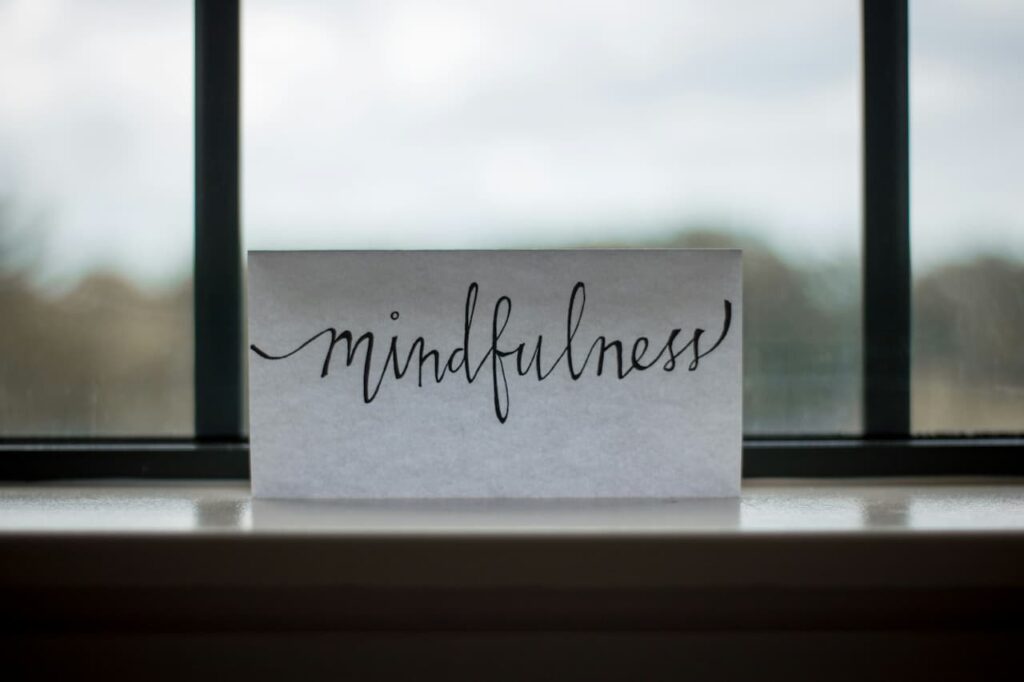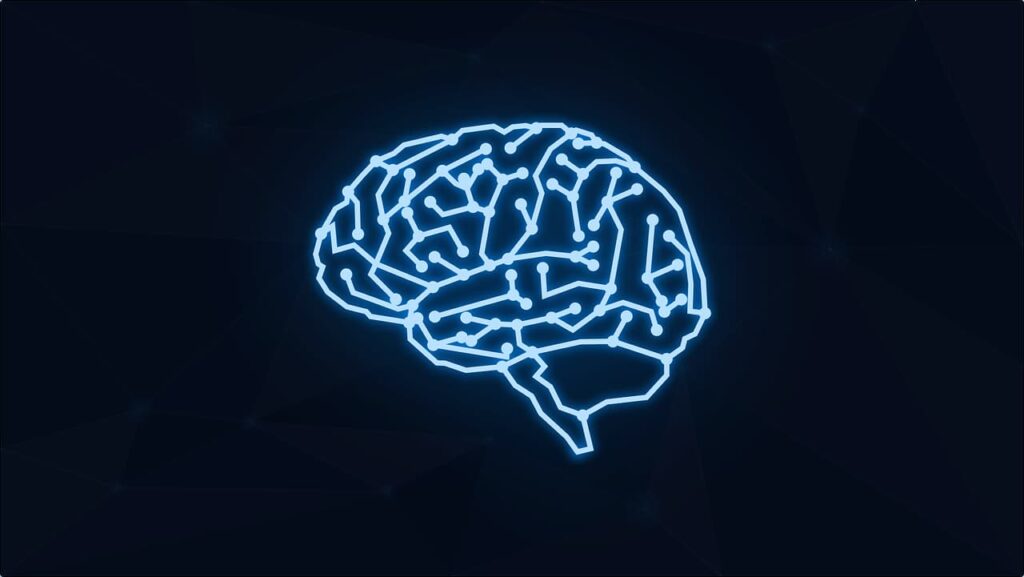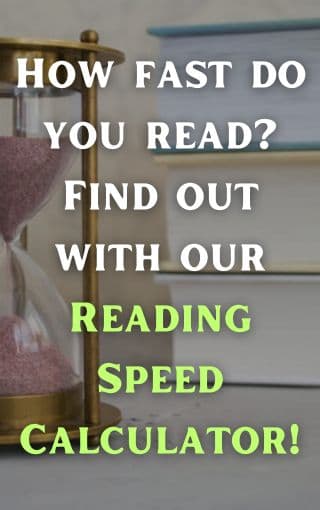Subscribe To Get Latest Updates!


Reading for Personal Development
Reading for personal development is a powerful way to enhance your life and achieve your goals. By exploring books that focus on self-improvement, motivation, and new skills, you can unlock new possibilities and gain valuable insights. Whether you’re looking to boost your confidence, develop better habits, or understand yourself better, reading offers a wealth of knowledge and inspiration.
In this article, we’ll dive into how reading can be a tool for personal growth and transformation. We’ll explore the benefits of choosing books that challenge and inspire you, and how these books can help you become a better version of yourself. From practical advice to inspiring stories, reading for personal development can provide the guidance and encouragement you need to reach your full potential.
Table of Contents
1. Introduction
Personal development refers to the continuous process of improving one’s skills, knowledge, self-awareness, and overall well-being. It involves actively seeking growth in various aspects of life such as emotional, intellectual, and professional areas through intentional learning and reflection.
When linked to reading, personal development means using books and other written materials to foster growth. By engaging with self-help books, biographies, philosophical works, or educational content, we can gain new insights, expand our understanding, and apply valuable lessons to enhance our lives. Reading becomes a tool for self-improvement, helping us to better understand ourselves, set goals, and develop the skills needed to achieve them.
2. The Importance of Reading for Self-Improvement

Reading serves as a powerful tool for personal growth by offering knowledge, insights, and perspectives that help individuals improve themselves across various dimensions—emotionally, intellectually, socially, and professionally. Here’s a detailed exploration of why reading is so crucial for self-improvement:
Access to Knowledge and Expertise:
- Expanding Knowledge: Books, articles, and other reading materials serve as gateways to an infinite pool of information and wisdom. Whether it’s mastering new skills, learning about history, or understanding psychological principles, reading allows us to acquire knowledge from experts and thinkers who have dedicated their lives to particular subjects.
- Deep Learning: Unlike casual learning experiences, reading encourages deep engagement with content. It allows us to explore complex ideas thoroughly and at our own pace, leading to a more profound understanding of topics that can significantly contribute to our self-improvement journey.
Developing Critical Thinking Skills:
- Analyzing Ideas: Reading for self-improvement often requires us to think critically about what we are reading. As we evaluate the arguments and concepts presented in texts, we practice analytical thinking, questioning assumptions, and drawing our conclusions.
- Problem-Solving: Exposure to different viewpoints and solutions in reading material enhances our problem-solving abilities. By learning how others have navigated challenges, we become better equipped to approach our issues with fresh ideas and strategies.
Broadening Perspectives and Worldviews:
- Exposure to Diverse Perspectives: Books expose us to ideas, cultures, and experiences that may be far removed from our daily lives. This exposure can shift our perspectives, allowing us to see the world more holistically and consider viewpoints we hadn’t previously encountered.
- Challenging Beliefs: Reading often forces us to confront our biases and question long-held beliefs. By challenging our assumptions and making us more open-minded, reading contributes to personal growth by enabling us to evolve in our thinking.
Enhancing Emotional Intelligence and Empathy:
- Understanding Human Behavior: Many self-help books, biographies, and literary works delve into human emotions and behavior. By reading about different human experiences and emotions, we can better understand others’ feelings and motivations, which improves our relationships and social interactions.
- Empathy Development: Through reading stories and narratives, we often see the world through the eyes of others, allowing us to build empathy. This emotional growth is critical for self-improvement, as it helps us relate to others more effectively and cultivate stronger emotional intelligence.
Building Self-Discipline and Focus:
- Developing Consistent Habits: Reading regularly requires discipline, especially when pursuing personal development. Setting aside time for reading every day fosters a routine that improves not just our knowledge but our ability to focus and remain dedicated to personal growth goals.
- Improving Focus and Attention Span: With the fast-paced nature of modern life, many people struggle with concentration. Reading, particularly longer texts or challenging material, helps improve our ability to focus for extended periods, thus enhancing our productivity in other areas of life.
Boosting Confidence and Self-Efficacy:
- Achieving Goals: Reading materials focused on personal development often provide actionable steps for achieving goals. By applying the knowledge and strategies gained through reading, individuals can accomplish their objectives, boosting their confidence and belief in their abilities.
- Mastering New Skills: As we read and implement the lessons from self-improvement books, we begin to see progress in various areas of our lives—whether it’s improving communication skills, developing better habits, or excelling in our careers. This success, in turn, increases our sense of self-efficacy and belief in our potential.
Cultivating a Growth Mindset:
- Embracing Lifelong Learning: Many books on personal development emphasize the importance of continuous learning and growth. By reading such materials, we internalize the idea that personal development is a lifelong journey, encouraging us to embrace challenges, learn from failures, and seek out new opportunities for improvement.
- Resilience and Adaptability: Reading about how others have overcome obstacles or setbacks can inspire resilience. It encourages us to view failures not as permanent roadblocks, but as opportunities for growth and learning, helping us to adapt and improve over time.
Inspiration and Motivation:
- Fuel for Ambition: Reading about the achievements, struggles, and philosophies of others can inspire us to strive for more in our own lives. Whether it’s reading a biography of a successful individual or a motivational book on self-discipline, reading serves as a constant source of inspiration and motivation.
- Setting and Achieving Goals: Many self-improvement books provide practical frameworks for setting and achieving personal goals. By reading about goal-setting techniques and strategies, we can apply these lessons to create a roadmap for our own development, leading to real progress in areas like health, career, relationships, and personal habits.
Reducing Stress and Improving Mental Well-being:
- Escaping Stress: Reading, especially when focused on personal development, can serve as a way to escape from the stresses of daily life and refocus on long-term growth. It offers a mental break, helping to reduce anxiety and foster a calmer, more balanced mind.
- Mental Clarity: Engaging with well-written, thought-provoking content can help clear the mind, providing new ways to frame problems or situations. This mental clarity is essential for personal growth, helping us approach challenges with a more centered and composed mindset.
Improving Communication Skills:
- Enhancing Vocabulary: Regular reading helps expand vocabulary, making us more articulate in both speaking and writing. Improved communication skills can enhance our relationships and professional success, both key elements of personal development.
- Understanding Complex Ideas: Books often present ideas in structured and nuanced ways, helping us better articulate and express complex concepts to others. This ability to convey thoughts clearly is invaluable for personal and professional growth.
Reading is one of the most powerful tools available for self-improvement. It provides access to a wealth of knowledge and experience, helps develop crucial mental skills, fosters emotional intelligence, and serves as an ongoing source of motivation. Through regular reading, we can transform our perspectives, expand our understanding, and actively pursue personal growth in all areas of life. By making reading a key component of our self-improvement journey, we unlock the potential for continual growth and long-lasting success.
3. Types of Books for Personal Development

Different types of books serve as valuable tools for self-improvement, growth, and transformation. These books cover a wide range of areas, from mental well-being and emotional intelligence to career success and goal-setting. Each type of book offers unique insights and strategies for various aspects of personal growth. Below is a detailed explanation of the types of books for personal development:
Self-Help Books
Focus: General personal growth, emotional well-being, habits, and mindset.
Description: Self-help books are designed to offer guidance, strategies, and inspiration for improving various areas of life. They typically cover topics such as building confidence, developing resilience, managing stress, and achieving personal goals. These books are often written in an accessible and practical style, with actionable steps to help readers implement changes in their lives.
Examples:
- The Power of Now by Eckhart Tolle
- The 7 Habits of Highly Effective People by Stephen Covey
- Atomic Habits by James Clear
Biographies and Memoirs
Focus: Learning through the life experiences of others.
Description: Biographies and memoirs provide insight into the lives of influential figures, allowing readers to learn from their successes, struggles, and failures. These books often offer valuable lessons in leadership, perseverance, and decision-making. Reading about real-life journeys can serve as inspiration and motivation, showing readers how others have navigated obstacles and achieved personal growth.
Examples:
- The Autobiography of Malcolm X by Malcolm X and Alex Haley
- Long Walk to Freedom by Nelson Mandela
- Becoming by Michelle Obama
Psychology and Emotional Intelligence Books
Focus: Understanding human behavior, emotional intelligence, and mental health.
Description: These books delve into the intricacies of the human mind and emotions, helping readers understand themselves and others better. Topics often include emotional intelligence (EQ), motivation, mental health, self-awareness, and interpersonal relationships. Such books provide tools to improve emotional regulation, communication, and empathy, making them vital for personal development.
Examples:
- Emotional Intelligence by Daniel Goleman
- Man’s Search for Meaning by Viktor Frankl
- The Power of Habit by Charles Duhigg
Productivity and Time Management Books
Focus: Enhancing productivity, efficiency, and achieving personal or professional goals.
Description: Books on productivity and time management focus on helping readers make the most of their time, prioritize tasks, and improve their focus. They often provide strategies for overcoming procrastination, setting goals, creating effective routines, and maintaining discipline. These books are ideal for those looking to increase their efficiency in both personal and professional life.
Examples:
- Deep Work by Cal Newport
- Getting Things Done by David Allen
- Eat That Frog! by Brian Tracy
Leadership and Career Development Books
Focus: Building leadership skills, enhancing career growth, and professional success.
Description: Leadership and career development books are written to help individuals become more effective leaders, improve decision-making, and navigate career challenges. These books often explore how to inspire others, lead with empathy, and foster collaboration. Additionally, they provide guidance on career advancement, networking, and strategic thinking for long-term professional success.
Examples:
- Leaders Eat Last by Simon Sinek
- Dare to Lead by Brené Brown
- The Lean Startup by Eric Ries
Mindfulness and Meditation Books
Focus: Mental well-being, mindfulness practices, and achieving inner peace.
Description: Books on mindfulness and meditation teach readers how to cultivate present-moment awareness and mental clarity. These practices are often tied to reducing stress, improving emotional regulation, and enhancing overall mental well-being. Such books provide step-by-step instructions on meditation, breathing techniques, and mindfulness exercises that contribute to personal growth and self-awareness.
Examples:
- The Miracle of Mindfulness by Thich Nhat Hanh
- Wherever You Go, There You Are by Jon Kabat-Zinn
- The Untethered Soul by Michael A. Singer
Spiritual and Philosophical Books
Focus: Exploring deeper questions about life, purpose, and personal values.
Description: Spiritual and philosophical books help readers reflect on existential questions, their purpose in life, and their personal beliefs. These books often provide frameworks for understanding life’s challenges and offer moral or ethical guidance for personal and spiritual growth. They can help readers cultivate inner peace, make meaning of their experiences, and live in alignment with their values.
Examples:
- The Four Agreements by Don Miguel Ruiz
- The Tao of Pooh by Benjamin Hoff
- Meditations by Marcus Aurelius
Financial Literacy and Personal Finance Books
Focus: Managing finances, building wealth, and achieving financial independence.
Description: Personal finance books provide readers with the tools and knowledge needed to manage money effectively, save, invest, and plan for long-term financial goals. These books are crucial for individuals who want to improve their financial literacy, make informed investment decisions, and gain control over their financial future.
Examples:
- Rich Dad Poor Dad by Robert T. Kiyosaki
- The Total Money Makeover by Dave Ramsey
- The Intelligent Investor by Benjamin Graham
Health and Wellness Books
Focus: Physical health, fitness, nutrition, and overall well-being.
Description: Books on health and wellness provide guidance on living a balanced and healthy lifestyle. They cover topics such as fitness, nutrition, sleep, mental health, and self-care routines. These books are essential for individuals looking to optimize their physical and mental health, improve energy levels, and develop habits that lead to a longer, healthier life.
Examples:
- Why We Sleep by Matthew Walker
- The 4-Hour Body by Tim Ferriss
- The Blue Zones by Dan Buettner
Creativity and Innovation Books
Focus: Enhancing creativity, innovation, and problem-solving abilities.
Description: Creativity and innovation books are designed to help individuals think outside the box, cultivate new ideas, and approach challenges with a fresh perspective. These books encourage readers to embrace creativity in both personal and professional contexts, offering techniques to unlock creative potential and foster innovation.
Examples:
- The War of Art by Steven Pressfield
- Big Magic by Elizabeth Gilbert
- Steal Like an Artist by Austin Kleon
Relationship and Communication Books
Focus: Improving interpersonal relationships, communication skills, and emotional intelligence.
Description: Books on relationships and communication focus on helping readers build healthier, more fulfilling connections with others. These books often provide strategies for resolving conflicts, improving communication, and understanding relationship dynamics. They are useful for enhancing romantic, familial, and professional relationships.
Examples:
- The Five Love Languages by Gary Chapman
- Crucial Conversations by Kerry Patterson
- Nonviolent Communication by Marshall B. Rosenberg
Motivational and Inspirational Books
Focus: Providing motivation and inspiration for achieving personal goals.
Description: Motivational and inspirational books are designed to encourage readers to take action, overcome obstacles, and pursue their dreams. These books often include personal stories of triumph, guidance on setting ambitious goals, and practical advice on maintaining motivation in the face of challenges.
Examples:
- You Are a Badass by Jen Sincero
- The Motivation Manifesto by Brendon Burchard
- Can’t Hurt Me by David Goggins
Each of these types of books contributes uniquely to personal development, offering readers the tools, strategies, and inspiration to grow in various aspects of life. By exploring a wide range of books, individuals can expand their knowledge, refine their skills, and continually enhance their emotional, intellectual, and practical capabilities. Whether the goal is to improve relationships, boost career success, or foster inner peace, reading provides a powerful foundation for achieving lasting personal growth.
4. The Role of Reading in Developing Key Personal Skills

Books and other written materials offer a valuable avenue for honing the skills necessary for success in various areas of life. By actively engaging with reading materials, individuals can foster personal growth and improve skills such as critical thinking, communication, emotional intelligence, decision-making, and problem-solving. Here’s a detailed exploration of how reading contributes to the development of key personal skills:
Critical Thinking
How Reading Develops Critical Thinking: Reading encourages critical engagement with texts, requiring readers to analyze, evaluate, and interpret the material rather than passively consuming information. Whether reading fiction, non-fiction, or academic works, readers must assess the credibility of information, question assumptions, and form their conclusions.
Books that present complex ideas, arguments, and varying viewpoints help readers develop the ability to think critically. For instance, reading philosophical works or scientific articles prompts readers to weigh evidence, detect biases, and consider alternative explanations, which directly enhances critical thinking skills.
Example: Reading books like Thinking, Fast and Slow by Daniel Kahneman sharpens one’s ability to assess both intuitive and logical thinking processes, leading to better decision-making and reasoning.
Communication Skills
Enhancing Vocabulary and Expression: One of the most obvious benefits of reading is the expansion of vocabulary and an improved understanding of language. Through exposure to diverse sentence structures, word usage, and styles of expression, readers become more articulate in both speaking and writing.
Regular reading allows individuals to internalize effective ways of expressing ideas clearly and persuasively, thus improving their ability to communicate thoughts with precision and impact.
Understanding Different Communication Styles: Reading books across genres and topics exposes readers to a variety of communication methods. For instance, reading dialogues in fiction can help readers understand conversational dynamics, while reading persuasive essays or speeches teaches techniques for influencing others.
Example: On Writing by Stephen King not only offers insights into creative writing but also helps readers develop clarity and brevity in their communication style.
Emotional Intelligence
Building Empathy Through Reading: Reading stories, especially fiction or memoirs, allows individuals to step into the shoes of diverse characters, experiencing their emotions, thoughts, and challenges. This practice cultivates empathy, as readers gain a deeper understanding of different emotional experiences and perspectives.
Books provide a safe space for readers to explore complex emotions and understand how others navigate them, thereby improving interpersonal relationships and emotional regulation in real life.
Understanding Emotional Responses: Non-fiction books on psychology and emotional intelligence help readers better understand their own emotions, as well as how to manage them effectively. This awareness is crucial for developing emotional intelligence and improving self-awareness and empathy.
Example: Daniel Goleman’s Emotional Intelligence explores how understanding and managing emotions can lead to greater personal and professional success, illustrating the role of emotional intelligence in leadership and relationships.
Problem-Solving and Decision-Making
Enhancing Analytical Thinking: Reading non-fiction books that discuss problem-solving frameworks, decision-making processes, and strategies for overcoming challenges helps individuals sharpen their analytical thinking. Books that present case studies, real-life examples, and logical problem-solving methods provide readers with practical tools they can apply to their own situations.
By reading about how others have faced and overcome difficulties, readers become better equipped to handle their problems in creative and informed ways.
Building Decision-Making Frameworks: Books on decision-making offer frameworks that guide readers in making informed choices, balancing risk and reward, and approaching decisions with clarity. Whether the text focuses on leadership decisions, personal dilemmas, or ethical considerations, reading cultivates the skills necessary for thoughtful decision-making.
Example: Decisive by Chip and Dan Heath provides readers with strategies for overcoming cognitive biases and making better choices, which improves problem-solving and decision-making skills.
Creativity and Innovation
Inspiring Creative Thinking: Reading fiction, particularly speculative or imaginative genres, stretches the mind by encouraging readers to think beyond conventional ideas and consider novel concepts. Exposure to creative worlds and innovative ideas sparks inspiration, fueling creative thinking and innovation in real-world applications.
Books that focus on creative processes or problem-solving techniques can help readers tap into their creativity and think outside the box, which is essential for personal and professional growth.
Cultivating Originality: Reading biographies of artists, entrepreneurs, or innovators helps readers understand how creative individuals approach problems and generate original ideas. This insight can inspire readers to adopt similar creative practices in their own lives.
Example: The War of Art by Steven Pressfield helps readers confront their internal resistance to creativity, fostering the discipline needed to pursue creative endeavors consistently.
Self-Discipline and Focus
Developing Discipline Through Reading: Reading, especially challenging texts, requires focus and perseverance. Whether tackling dense non-fiction or complex literature, readers must practice discipline to complete the material and fully understand its contents.
Reading about time management, self-control, and habits also teaches strategies for building discipline in other areas of life, such as goal setting, productivity, and long-term planning.
Enhancing Focus and Attention Span: In today’s fast-paced world, where distractions are constant, reading provides an opportunity to improve focus. Concentrating on reading for extended periods helps improve attention span, enabling individuals to better focus on tasks and goals.
Example: Deep Work by Cal Newport emphasizes the importance of focused, distraction-free work, and reading about such concepts can inspire individuals to cultivate deeper levels of concentration in their personal and professional lives.
Adaptability and Resilience
Learning from Others’ Experiences: Reading about how others have adapted to change, overcome challenges, or navigated difficult circumstances provides readers with models of resilience. Learning from the experiences of others can help individuals build their coping strategies and become more adaptable when facing adversity.
Developing a Growth Mindset: Books that emphasize resilience, persistence, and continuous learning encourage readers to adopt a growth mindset. This mindset focuses on the belief that abilities and intelligence can be developed over time through effort and learning, leading to a more adaptable and optimistic approach to life’s challenges.
Example: Grit by Angela Duckworth highlights the power of passion and perseverance, showing readers how to develop resilience and thrive in the face of setbacks.
Leadership and Influence
Building Leadership Qualities: Reading about leadership principles, whether through biographies of great leaders or books on leadership theory, helps readers develop the qualities necessary to inspire and guide others. Leadership books often focus on decision-making, empathy, communication, and vision, all of which are essential for becoming an effective leader.
Leadership requires self-awareness, and reading helps individuals reflect on their strengths, weaknesses, and leadership styles.
Improving Influence and Persuasion: Books on influence and persuasion teach readers how to motivate others, build trust, and communicate ideas effectively. This skill is crucial for personal and professional success, whether leading a team, persuading others, or advocating for causes.
Example: Influence: The Psychology of Persuasion by Robert Cialdini provides readers with scientifically backed methods for influencing others and cultivating effective leadership.
Time Management and Productivity
Learning Effective Time Management Techniques: Many personal development books focus on strategies for time management and productivity, offering readers frameworks for organizing their tasks, prioritizing their goals, and improving efficiency. These books help readers optimize their schedules and stay on track toward achieving their personal and professional ambitions.
Building Sustainable Habits: Books on productivity emphasize the importance of developing habits that lead to sustained success. By learning how to structure time and maintain focus, readers become more capable of meeting deadlines, completing projects, and balancing various responsibilities.
Example: The 7 Habits of Highly Effective People by Stephen Covey provides actionable habits for improving time management, increasing productivity, and achieving personal and professional success.
Reading plays a fundamental role in developing a wide range of personal skills that are essential for success and personal growth. By consistently engaging with diverse materials, readers can improve their critical thinking, communication, emotional intelligence, problem-solving abilities, creativity, and more. The key personal skills developed through reading enable individuals to navigate challenges, achieve their goals, and become more effective in every area of life. Whether reading for inspiration, knowledge, or practical advice, the skills gained from reading contribute to lifelong self-improvement and empowerment.
5. Reading to Build Mental and Emotional Resilience

Mental and emotional resilience refers to the ability to cope with adversity, manage stress, and recover from challenges with strength and adaptability. Through reading, individuals can cultivate resilience by learning new coping mechanisms, gaining inspiration from others’ experiences, and expanding their emotional awareness. Books can provide both practical guidance and emotional solace, making them an invaluable resource for those seeking to build stronger mental and emotional fortitude.
Here’s an in-depth explanation of how reading contributes to building mental and emotional resilience:
Understanding Resilience Through the Experiences of Others
Inspiration from Real-Life Stories: Biographies, memoirs, and autobiographies provide a glimpse into how others have navigated life’s challenges and setbacks. Reading about how individuals have overcome adversity-whether in personal life, professional careers, or in extreme circumstances-helps readers realize that resilience is something that can be learned and cultivated.
These stories serve as powerful examples of how others have used mental toughness and emotional strength to overcome grief, failure, illness, or significant personal struggles. By witnessing their resilience, readers can draw inspiration and find hope in their own situations.
Examples:
- Man’s Search for Meaning by Viktor Frankl: This book describes Frankl’s experiences in a Nazi concentration camp and how he found meaning even in the most desperate conditions. His reflections on suffering and survival are a powerful testament to human resilience.
- When Breath Becomes Air by Paul Kalanithi: This memoir chronicles the author’s battle with terminal cancer and his reflections on life, death, and finding meaning in the face of mortality.
Developing Emotional Intelligence (EQ)
Understanding Emotions and How to Manage Them: Emotional intelligence, or the ability to recognize, understand, and manage our own emotions as well as the emotions of others, is essential for resilience. Reading books on emotional intelligence, psychology, and mindfulness helps readers develop the skills needed to process their emotions and respond to challenges in a balanced way.
Resilient individuals are often those who are self-aware and able to regulate their emotions during stressful situations. Books on emotional regulation provide practical strategies for managing anger, frustration, sadness, and anxiety, all of which are crucial for maintaining emotional stability in the face of adversity.
Developing Empathy: Reading, especially fiction, enhances empathy by allowing readers to experience the emotions, perspectives, and challenges of different characters. Empathy is a critical component of emotional resilience, as it enables individuals to form meaningful connections, which act as support systems during difficult times.
Examples:
- Emotional Intelligence by Daniel Goleman: This book explores the components of emotional intelligence and how developing these skills can improve emotional resilience.
- The Gifts of Imperfection by Brené Brown: Brown discusses vulnerability, shame, and self-compassion, all of which are key elements in developing emotional resilience.
Learning Effective Coping Strategies
Practical Techniques for Stress Management: Reading self-help and psychological books often provides readers with effective coping strategies for managing stress, anxiety, and depression. These strategies can range from mindfulness exercises and meditation techniques to cognitive behavioral approaches that help individuals reframe negative thoughts and develop healthier mental habits.
Books on stress management help readers recognize their stressors and respond to them in a proactive and mindful way, fostering resilience during tough times.
Mindfulness and Meditation Practices: Many books focus on mindfulness and meditation as key tools for developing resilience. These practices encourage individuals to stay present, manage their thoughts, and reduce stress, which contributes to stronger mental resilience.
Meditation-focused reading teaches readers how to cultivate inner peace and mental clarity, which helps build resilience in the face of uncertainty, fear, or anxiety.
Examples:
- The Power of Now by Eckhart Tolle: This book emphasizes the importance of living in the present moment and using mindfulness to manage stress and emotional turmoil.
- The Body Keeps the Score by Bessel van der Kolk: This book explores the relationship between trauma, the body, and the brain, offering insights into how resilience can be built through physical and psychological healing.
Expanding Mental Flexibility
Challenging Beliefs and Adapting to Change: Reading broadens our perspectives and challenges our preconceived beliefs. Engaging with diverse viewpoints and ideas helps cultivate mental flexibility, a key trait in resilient individuals. Mental flexibility allows us to adapt to new situations and cope with changes, setbacks, or failures with an open mind.
Exposure to different philosophies, worldviews, and approaches to problem-solving encourages readers to see things from multiple angles, which can help them navigate difficult situations more effectively.
Examples:
- Mindset: The New Psychology of Success by Carol Dweck: Dweck’s concept of a growth mindset—where individuals view challenges as opportunities for growth rather than threats—plays a significant role in building mental resilience.
- Anti-Fragile by Nassim Nicholas Taleb: This book discusses the concept of becoming “anti-fragile”—benefiting and growing stronger from adversity and chaos.
Building Self-Awareness and Self-Compassion
Strengthening Self-Awareness: Resilient individuals often have a strong sense of self-awareness, which enables them to recognize their strengths and weaknesses, identify stress triggers, and respond to difficult emotions in constructive ways. Books that focus on self-reflection and personal growth help readers build this critical awareness.
Journaling and reflective exercises found in many personal development books encourage readers to pause and assess their thoughts, reactions, and emotions, helping them develop the self-awareness needed to navigate challenges.
Practicing Self-Compassion: Self-compassion is another important element of resilience. Reading books that focus on self-care, acceptance, and kindness toward oneself teaches readers how to handle setbacks or failures without self-criticism. Resilience often involves the ability to forgive ourselves and move forward with renewed strength.
Examples:
- Self-Compassion by Kristin Neff: Neff explains the power of being kind to oneself in times of difficulty and how this practice builds emotional resilience.
- The Road Less Traveled by M. Scott Peck: This classic self-help book discusses the importance of self-discipline, responsibility, and self-awareness in personal growth and resilience.
Reframing Negative Thoughts
Cognitive Behavioral Approaches: Many books on mental health and personal development draw on cognitive behavioral therapy (CBT) principles to help readers recognize and challenge negative thinking patterns. Reframing these negative thoughts enables individuals to respond to stress with a more balanced perspective, thereby building resilience.
Readers can learn to develop a “reframing” habit, where they consciously identify irrational or negative thoughts and replace them with more positive, realistic interpretations. This skill is vital for maintaining mental stability and bouncing back from setbacks.
Learning Positive Thinking: Books that focus on positive psychology or optimism can also help readers develop a more resilient mindset by teaching them to focus on their strengths, acknowledge progress, and maintain a hopeful outlook, even in difficult times.
Examples:
- The Happiness Trap by Russ Harris: This book uses Acceptance and Commitment Therapy (ACT) principles to help readers move past negative thoughts and embrace more positive thinking patterns.
- Learned Optimism by Martin Seligman: Seligman explains how to cultivate optimism by reframing negative thoughts and adopting a resilient outlook.
Increasing Mental Stamina
Building Mental Toughness: Resilience is not just about bouncing back but also about persisting through difficulties. Books that emphasize mental toughness help readers develop the stamina needed to keep moving forward, even in the face of failure or adversity.
These books often focus on strategies like grit, perseverance, and willpower, teaching readers how to stay disciplined and committed to their goals despite setbacks.
Overcoming Challenges: Resilience is strengthened by overcoming challenges. Reading about how others have achieved mental toughness or developed endurance through trials can inspire readers to push through their difficulties and remain resilient.
Examples:
- Grit: The Power of Passion and Perseverance by Angela Duckworth: This book explores the role of grit-long-term perseverance and passion-in achieving success and building resilience.
- Can’t Hurt Me by David Goggins: Goggins shares his personal story of extreme mental and physical challenges and how mental resilience played a key role in his success.
Building a Support Network
The Role of Social Support in Resilience: Many books emphasize the importance of strong social connections in building resilience. By reading about the role of relationships, community, and support systems, individuals learn how to cultivate meaningful connections that provide emotional strength during challenging times.
Books on relationships, empathy, and communication provide strategies for building and maintaining these crucial support systems, which are often the bedrock of emotional resilience.
Examples:
- The Resilience Factor by Karen Reivich and Andrew Shatté: This book explains the role of relationships in emotional resilience and how individuals can strengthen their support networks.
- Option B by Sheryl Sandberg and Adam Grant: Sandberg shares her journey of building resilience after the sudden death of her husband, highlighting the role of support networks in overcoming grief.
Reading plays a crucial role in helping individuals develop mental and emotional resilience. Whether it’s through learning coping strategies, developing emotional intelligence, or finding inspiration in the stories of others, books offer both the knowledge and the emotional support needed to navigate life’s challenges. By incorporating lessons from literature into daily life, readers can strengthen their ability to withstand adversity, adapt to change, and maintain emotional stability in difficult times.
6. The Impact of Reading on Self-Reflection and Mindfulness

Reading can serve as a powerful catalyst for both self-reflection and mindfulness, encouraging individuals to pause, think critically about their inner lives, and develop a heightened awareness of the present moment. By engaging deeply with books, readers are able to explore their thoughts, emotions, and actions, leading to greater self-awareness, personal growth, and an enriched understanding of their surroundings. Let’s delve deeper into how reading fosters these two vital elements of personal development:
Reading as a Tool for Self-Reflection
Self-reflection involves thinking deeply about one’s thoughts, feelings, and actions, often with the aim of understanding personal motivations, strengths, weaknesses, and areas for growth. Reading can spark and deepen this process by providing ideas, perspectives, and narratives that encourage introspection.
Gaining New Perspectives:
- Exposure to Different Viewpoints: Reading diverse genres—whether fiction, memoirs, philosophy, or self-help—introduces readers to a wide array of experiences and viewpoints. These perspectives allow readers to step outside their immediate circumstances and view their lives from different angles.
- Questioning Personal Beliefs: Books often challenge established beliefs and biases, urging readers to reflect on why they hold certain opinions. This self-reflective process helps readers clarify or reshape their values and beliefs, fostering personal growth.
- Example: Reading a book like The Alchemist by Paulo Coelho encourages readers to reflect on their life journey, goals, and purpose, leading to deeper introspection about what truly matters to them.
Examining Personal Choices and Behaviors:
- Relating to Characters or Narratives: In fiction, readers may see themselves in the characters and situations presented, leading to greater self-reflection. Identifying with a character’s struggles, conflicts, or triumphs often prompts readers to think about their own choices and behaviors in similar circumstances.
- Learning from Others’ Mistakes and Successes: Autobiographies and biographies allow readers to explore how others have navigated life’s challenges. Reflecting on these journeys helps readers understand their own life decisions, drawing lessons from the experiences of others.
- Example: Tuesdays with Morrie by Mitch Albom encourages readers to reflect on what truly makes life meaningful, asking deep questions about relationships, legacy, and how we spend our time.
Encouraging Personal Growth and Change:
- Books as Mirrors: Many personal development books explicitly encourage self-reflection by offering exercises, prompts, or thought-provoking questions. These activities help readers pause, look inward, and evaluate their habits, mindsets, and behaviors in a structured way.
- Setting the Stage for Change: Books that focus on growth often inspire readers to reflect on where they currently are in life and where they want to go. This process of self-assessment lays the foundation for meaningful personal change.
- Example: The 7 Habits of Highly Effective People by Stephen Covey offers frameworks and principles that encourage readers to reflect on their habits and actively work towards becoming more effective and intentional in their personal and professional lives.
Reading as a Practice in Mindfulness
Mindfulness refers to the ability to be fully present and aware of one’s thoughts, feelings, and environment in the present moment, without judgment. Reading can support the development of mindfulness by fostering focused attention, emotional awareness, and deep immersion in the present.
Deep Engagement with the Present Moment:
- Focused Attention: Reading requires concentration and presence. When a reader is fully immersed in a book, they are completely engaged with the words, ideas, and imagery unfolding before them. This practice of focused attention mirrors the process of mindfulness, as it draws the reader into the present moment.
- Escaping Distractions: In a world full of distractions, reading helps train the mind to focus for extended periods. This focused attention strengthens one’s ability to stay present in other areas of life, making it easier to practice mindfulness in daily tasks.
- Example: Reading a book like The Power of Now by Eckhart Tolle emphasizes the importance of the present moment and helps readers cultivate mindfulness both during and after reading.
Heightening Emotional Awareness:
- Mindfulness of Emotions: Many books—especially fiction and personal memoirs—explore complex emotional landscapes. As readers journey through these emotions with the characters or authors, they become more aware of their own emotional responses, fostering emotional mindfulness.
- Processing Emotions in Real Time: When a passage resonates emotionally with the reader, they may pause to reflect on why they are feeling a certain way. This mindful processing of emotions helps readers become more attuned to their inner world and how certain stimuli evoke different feelings.
- Example: Reading a deeply emotional narrative, such as A Little Life by Hanya Yanagihara, engages readers in the emotional lives of the characters. As readers experience sadness, empathy, or joy, they practice being mindful of their own emotions.
Slowing Down the Pace
- Reading as a Mindful Activity: Engaging with a book naturally slows down the pace of one’s thoughts. In contrast to the fast-paced consumption of information on social media or the internet, reading requires a deliberate and slower pace. This deceleration allows readers to absorb information thoughtfully and carefully, which is at the heart of mindfulness.
- Creating Space for Reflection: Mindful reading encourages readers to pause between chapters or sections, giving them space to reflect on what they have read and how it relates to their own lives. This mindful pause is similar to the meditative practice of sitting with one’s thoughts without rushing.
- Example: Reading poetry, such as The Poetry of Rumi, often invites readers to slow down, savor the words, and reflect on the meaning behind them—creating moments of mindfulness in each line.
Reading as a Gateway to Self-Awareness and Clarity
Mindfulness and self-reflection lead to greater self-awareness—an essential component of personal development. Reading supports this journey by helping readers clarify their inner lives, motivations, and reactions, allowing them to navigate the world with greater understanding and intention.
Self-Awareness Through Literature:
- Understanding Reactions to Texts: When reading, individuals often find themselves agreeing with, disagreeing with, or being moved by certain ideas. These reactions reveal aspects of their personality, beliefs, and emotional responses. As readers reflect on why they are affected by certain narratives, they gain greater clarity about their values and emotional triggers.
- Example: Reading Braving the Wilderness by Brené Brown helps readers explore their feelings of belonging, loneliness, and vulnerability, prompting self-awareness and personal insight.
Identifying Patterns and Habits
- Books as Catalysts for Change: Books on personal growth often encourage readers to identify patterns in their thinking or behavior that may be holding them back. By reflecting on these patterns, readers gain the awareness needed to change them, leading to more mindful living.
- Recognizing Mental Habits: Through self-help books, readers can explore the concept of mental habits—repetitive thought patterns that influence how they see the world. Becoming aware of these habits is the first step toward breaking unproductive patterns and developing more mindful ways of thinking.
- Example: The Four Agreements by Don Miguel Ruiz outlines mental agreements we make with ourselves, helping readers reflect on the internal dialogues that shape their lives and make intentional changes.
Cultivating Gratitude and Presence
Practicing Gratitude: Many books on mindfulness and self-development emphasize the importance of gratitude as a way to stay present and grounded. Readers who engage with these ideas often develop a mindful habit of appreciating what they have and recognizing the beauty in everyday moments.
Living in the Present: Mindful reading encourages readers to focus on the now, whether that’s savoring a moment in a story or appreciating the insights a self-help book provides. This practice of living in the present extends beyond the act of reading, enhancing daily mindfulness.
Example: The Book of Joy by Dalai Lama and Desmond Tutu focuses on gratitude, joy, and mindfulness, encouraging readers to cultivate these qualities in their own lives.
Reflection After Reading
Journaling as a Follow-Up Practice: Many personal development books encourage reflection exercises, such as journaling, after reading. Writing down insights, reactions, or new ideas gleaned from reading reinforces the act of self-reflection and mindfulness. This written reflection allows readers to process information more deeply and integrate it into their daily lives.
Tracking Growth and Progress: Keeping a journal of reflections after reading not only fosters mindfulness but also allows individuals to track their personal growth over time. This practice gives readers the opportunity to revisit and learn from their reflections, strengthening their self-awareness and personal development.
Example: Many readers of books like The Artist’s Way by Julia Cameron incorporate reflective journaling, using the practice to enhance creativity, mindfulness, and self-discovery.
Reading has a profound impact on personal development by encouraging both self-reflection and mindfulness. Whether through deep engagement with characters, thought-provoking self-help exercises, or the introspective nature of philosophy and memoirs, reading provides the space and structure for individuals to pause, reflect, and become more aware of their inner world. By regularly engaging in mindful reading and reflection, individuals can enhance their self-awareness, emotional intelligence, and presence, all of which are essential for sustained personal growth and fulfillment.
7. Creating Positive Habits Through Reading

Creating Positive Habits Through Reading is an essential component of Reading for Personal Development because it leverages the power of books and other written materials to inspire, guide, and reinforce habits that lead to long-term personal growth and well-being. Reading serves not only as a tool for acquiring knowledge but also as a means of embedding positive behavioral patterns into daily life. This process involves understanding the psychology of habit formation, identifying the types of habits that foster self-improvement, and using reading as a consistent source of motivation and accountability.
Here’s an in-depth explanation of how reading can help in creating positive habits:
Understanding the Psychology of Habit Formation Through Reading
The Habit Loop: Books on personal development and psychology often introduce readers to the concept of the “habit loop,” which is the cyclical pattern that drives habits: cue (trigger), routine (the behavior), and reward (the benefit). By reading about how habits are formed and maintained, individuals gain a deeper understanding of how they can harness this process to their advantage.
For instance, understanding how small triggers (such as a time of day, an emotional state, or environmental cues) lead to automatic behaviors is crucial for building positive habits.
How Reading Reinforces Habit Awareness: Books that focus on habits encourage readers to become more mindful of their existing patterns and routines. By reading about the mechanisms behind habits, individuals are better equipped to recognize negative habits and replace them with positive ones.
Example: In The Power of Habit by Charles Duhigg, the habit loop is explained in detail, providing readers with a framework to analyze their habits and intentionally change them.
Learning Which Habits Lead to Success: Many books in the personal development genre offer insights into the specific habits that successful people practice daily. By reading about these habits—whether they relate to health, productivity, emotional well-being, or relationships—individuals can identify which ones they want to adopt in their own lives.
Books about highly successful individuals often reveal the common habits that contribute to their achievements, such as time management, consistency, and maintaining a positive mindset.
Creating a Blueprint for Success: Reading can act as a roadmap for creating effective habits. For instance, books on time management or productivity provide step-by-step guides for developing habits that optimize efficiency and focus, such as setting daily goals, using to-do lists, or practicing deep work.
Example: Atomic Habits by James Clear is a comprehensive guide to building positive habits, with practical strategies on how to make tiny changes that compound over time to create significant improvements in life.
Reinforcing Positive Behaviors
Daily Reading as a Habit: One of the simplest and most effective habits that reading can help create is the act of reading itself. Establishing a regular reading habit promotes continuous learning and self-improvement. When individuals make reading a daily or weekly routine, they expose themselves to new ideas and insights that reinforce other positive habits.
Books often offer reinforcement for positive behaviors such as exercising regularly, practicing mindfulness, or improving communication. By repeatedly engaging with content that encourages these behaviors, readers are more likely to stay motivated and consistent in their practice.
Example: Incorporating daily reading sessions, such as 20 minutes each morning, can lead to the formation of a habit where personal development is actively pursued over time.
Using Books as Accountability Tools
Tracking Progress: Many books on personal development encourage readers to keep track of their progress, often by journaling, setting milestones, or using habit trackers. Reading such books provides readers with actionable tools to measure how well they are incorporating new habits into their lives.
Books that include reflective exercises, daily prompts, or checklists help readers remain accountable to themselves. They also offer guidance on how to adjust routines when they encounter challenges or setbacks.
Developing a Growth Mindset: Books that focus on personal development often emphasize the importance of adopting a growth mindset—believing that abilities and habits can be developed through effort and persistence. This mindset encourages readers to see habit formation as a long-term process, making them more resilient in the face of setbacks.
Example: Mindset by Carol Dweck encourages readers to focus on growth and improvement rather than perfection, helping them stay committed to positive habits even when challenges arise.
Creating a Structure for Habit Formation
Building Routines: Books on time management, productivity, and self-discipline offer practical advice for creating structured routines that support habit formation. By reading these guides, individuals learn how to create schedules, set boundaries, and implement systems that help maintain consistency in their habits.
Structure is key to building habits because it reduces the mental energy required to make decisions. When habits are incorporated into daily routines, they become automatic, leading to sustainable personal growth.
Simplifying Habit Formation: Some books break down complex habits into smaller, manageable steps, making the process of adopting new behaviors less overwhelming. These small, incremental changes often lead to lasting habits because they are easier to maintain over time.
Example: The Miracle Morning by Hal Elrod outlines a morning routine that includes habits such as journaling, meditation, and exercise, all designed to set a positive tone for the day.
Breaking Bad Habits
Understanding the Science Behind Negative Habits: Just as books help create positive habits, they also provide strategies for breaking negative ones. Many personal development books focus on how bad habits form, why they persist, and how they can be replaced with healthier alternatives.
By understanding the underlying triggers and rewards that drive negative behaviors, readers can take control and consciously replace them with positive habits. Books often offer practical advice on how to “rewire” the brain to associate different behaviors with similar rewards.
Examples of Habit Substitution: Many books on habit formation emphasize the importance of substituting a negative habit with a positive one, rather than simply trying to eliminate the behavior. For example, replacing mindless snacking with a short walk or deep breathing exercises can help break unhealthy cycles.
Example: Breaking the Habit of Being Yourself by Dr. Joe Dispenza offers insights into how our thoughts, emotions, and behaviors shape habits, and how individuals can reprogram themselves to break negative patterns and adopt positive habits.
Creating a Positive Feedback Loop
Leveraging the Power of Small Wins: Many books on habit formation highlight the importance of small wins in creating a positive feedback loop. Small achievements provide the motivation needed to keep going, as they produce a sense of accomplishment and reinforce the desire to continue building the habit.
Reading about the psychology of rewards and reinforcement helps readers understand how to celebrate small victories, which leads to long-term habit formation.
Habit Stacking: Some personal development books introduce the concept of habit stacking, where new habits are linked to existing ones to make them easier to maintain. This method allows individuals to build a positive feedback loop by associating new habits with established routines.
Example: Tiny Habits by BJ Fogg outlines the concept of habit stacking and the power of starting with small, easily achievable habits that compound into more significant changes over time.
Staying Motivated Through Inspirational Reading
Motivation Through Success Stories: Reading about others’ success stories often serves as a source of motivation. Inspirational books that showcase how others have built positive habits despite challenges inspire readers to stay committed to their own personal development journey.
Whether it’s through biographies of successful people or books that provide motivational guidance, reading these stories helps individuals stay focused on their goals, reinforcing the habits they are trying to build.
Visualizing Success: Many personal development books encourage readers to visualize the outcome of their habits and goals. Visualization is a powerful tool for reinforcing positive habits because it helps individuals stay connected to the reasons behind their actions.
Example: Can’t Hurt Me by David Goggins showcases Goggins’ journey of overcoming extreme physical and mental challenges, inspiring readers to push through their limitations and stay motivated to achieve their goals.
The Role of Reading in Habit Mastery
The Process of Continuous Improvement: Reading for personal development helps individuals understand that habit formation is not a one-time event but an ongoing process of refinement and growth. Books that emphasize continuous improvement teach readers how to tweak, adjust, and optimize their habits over time, ensuring they evolve as personal circumstances change.
Books provide new insights and strategies as individuals advance in their personal development journey, allowing them to master their habits and deepen their commitment to growth.
Sustaining Positive Change: Many books stress the importance of making habits sustainable over the long term. Readers learn that habits must be adaptable and evolve with changing life circumstances, ensuring they remain effective over time.
Example: The Slight Edge by Jeff Olson highlights the idea that small, consistent actions lead to long-term success and personal mastery of habits.
Reading plays a crucial role in creating and sustaining positive habits, as it offers the knowledge, motivation, and tools necessary to support long-term personal development. By understanding the psychology behind habits, identifying the habits that lead to success, and using books as accountability tools, readers can build a structured and consistent approach to habit formation. Whether it’s through daily routines, small wins, or motivation drawn from others’ stories, reading provides a strong foundation for creating habits that enhance well-being, productivity, and emotional resilience.
8. Reading for Mental Health and Well-being

Books and other written materials can profoundly influence our mental and emotional well-being, serving as tools for stress relief, self-awareness, emotional processing, and resilience building. Whether it’s through self-help books that provide practical mental health strategies, fiction that offers emotional release, or mindfulness books that guide us toward inner peace, reading can be a transformative practice for maintaining and improving mental health. In the context of personal development, reading is not just about gaining knowledge but about fostering a balanced, healthy state of mind.
Here’s a detailed explanation of how reading impacts mental health and well-being:
Reading as a Form of Stress Relief
Escapism and Emotional Release: Fiction, especially genres like fantasy or historical novels, allows readers to escape their daily stressors and immerse themselves in other worlds. This mental escape can provide relief from anxiety, worry, or daily pressure, allowing the reader to step back and return to their life with a refreshed mind.
Emotional catharsis through reading is common. When readers experience a story that moves them, such as a tragic narrative or a story of triumph, it often allows them to release pent-up emotions, providing a healthy outlet for feelings they may be struggling with in real life.
Lowering Stress Levels: Scientific studies have shown that reading can lower heart rates, ease muscle tension, and reduce stress. In fact, reading for just six minutes has been found to decrease stress levels by up to 68%, making it more effective than listening to music, drinking tea, or taking a walk. This makes reading a powerful tool for those seeking relaxation and a break from life’s stressors.
Example: Immersing oneself in a book like Harry Potter and the Sorcerer’s Stone by J.K. Rowling offers both an emotional escape and a calming effect, allowing readers to disconnect from their worries and enjoy the magical world of fiction.
Books as a Source of Comfort and Emotional Support
Feeling Understood: Many readers turn to books during challenging times for comfort and solace. Self-help books, memoirs, and personal development guides that focus on mental health can offer readers a sense of validation, making them feel understood in their struggles. When people read about others who have faced similar challenges, they often feel less alone and more hopeful about overcoming their own difficulties.
Books can normalize emotions like grief, anxiety, depression, and loneliness by providing narratives that resonate with the reader’s own experiences. This sense of shared understanding fosters emotional healing and encourages readers to address their mental health openly.
Coping with Grief and Loss: Books, particularly those that deal with loss and healing, provide readers with language and strategies for coping with grief. They can offer emotional guidance, helping readers navigate the complex emotions associated with losing a loved one.
Example: Option B by Sheryl Sandberg and Adam Grant explores the topic of grief and resilience, offering insights on how to rebuild life after experiencing profound loss. For many readers, books like this provide a roadmap to recovery and emotional support during difficult times.
Developing Mindfulness and Mental Clarity Through Reading
Practicing Mindfulness While Reading: Reading, especially works focused on mindfulness and meditation, teaches readers how to become more present and aware in their daily lives. Mindfulness books guide individuals through practices that encourage focusing on the moment, breathing deeply, and letting go of anxious or intrusive thoughts.
Engaging with mindfulness literature allows readers to cultivate inner peace, reduce mental clutter, and manage stress by practicing self-awareness. Many mindfulness books come with exercises that can be easily incorporated into daily routines, offering readers practical tools to maintain mental clarity.
Example: The Miracle of Mindfulness by Thich Nhat Hanh is a powerful book that introduces readers to the practice of mindfulness. Through meditation, mindful breathing, and living in the present, readers can enhance their mental clarity and emotional well-being.
Learning Cognitive and Behavioral Strategies for Managing Mental Health
Cognitive Behavioral Therapy (CBT) Books: Cognitive behavioral therapy (CBT) is a well-known and effective approach to managing anxiety, depression, and other mental health conditions. Books that focus on CBT provide readers with practical techniques to challenge negative thoughts, reframe situations, and adopt healthier mental patterns.
These books empower readers to take control of their mental health by teaching them how to break the cycle of unhelpful thought patterns and replace them with positive ones. CBT books are highly practical and often include exercises, worksheets, and real-life scenarios that readers can use to apply the techniques in their own lives.
Example: Feeling Good: The New Mood Therapy by Dr. David D. Burns is a widely regarded book that teaches readers how to use CBT techniques to manage depression and anxiety. It provides practical exercises and thought-challenging techniques that improve mental health and well-being.
Inspiring Resilience and Personal Growth
Reading for Resilience: Books that emphasize resilience help readers develop mental strength by teaching them how to handle adversity, setbacks, and challenges. Many personal development books focus on building resilience by encouraging readers to cultivate self-discipline, perseverance, and emotional flexibility.
These books often provide readers with stories of individuals who have overcome significant life challenges. This not only inspires hope but also teaches practical strategies for facing difficult circumstances with a resilient mindset. By learning from the experiences of others, readers can strengthen their own capacity for coping with hardship and stress.
Developing a Growth Mindset: Reading books that emphasize the importance of a growth mindset—the belief that abilities and intelligence can be developed through effort—helps readers approach challenges with optimism and persistence. This mindset is key to building emotional resilience and mental toughness, especially when dealing with obstacles or failures.
Example: Grit: The Power of Passion and Perseverance by Angela Duckworth teaches readers how resilience and persistence play a critical role in success, emphasizing the importance of staying committed in the face of adversity.
Enhancing Emotional Intelligence (EQ) Through Reading
Understanding and Regulating Emotions: Emotional intelligence (EQ) is a key component of mental well-being, as it involves the ability to recognize, understand, and manage emotions in ourselves and others. Books on emotional intelligence help readers cultivate self-awareness, self-regulation, empathy, and social skills, all of which contribute to better mental health.
Readers who engage with emotional intelligence literature learn how to navigate challenging emotions, handle interpersonal conflicts, and build stronger relationships—all of which are vital to maintaining mental and emotional well-being.
Increasing Empathy: Reading fiction, in particular, has been shown to improve empathy by allowing readers to step into the minds of characters and experience their thoughts and emotions. This exercise in perspective-taking helps readers develop a deeper understanding of human behavior, fostering both empathy and compassion. This, in turn, improves relationships and emotional health.
Example: Emotional Intelligence by Daniel Goleman provides readers with insights into how emotions shape our actions and decisions. It offers practical tools for improving emotional regulation and developing healthier, more meaningful relationships.
Addressing Specific Mental Health Challenges
Books on Depression and Anxiety: Many books focus on helping readers manage specific mental health conditions, such as depression or anxiety. These books offer coping strategies, therapeutic exercises, and real-life examples to help readers better understand their condition and develop tools for managing symptoms.
By reading about the experiences of others who have faced similar struggles, individuals often feel less isolated and more equipped to seek help or practice self-care.
Understanding Mental Health Conditions: Books can also provide valuable education about mental health conditions, reducing the stigma around seeking help and encouraging readers to recognize the signs of mental health struggles in themselves and others. By educating themselves, readers can become better advocates for their own mental well-being and for those around them.
Example: The Noonday Demon: An Atlas of Depression by Andrew Solomon is a comprehensive exploration of depression, combining personal narrative with scientific research. It provides insights into the complexity of the condition and offers strategies for managing it.
The Role of Self-Help Books in Mental Health
Practical Advice for Improving Well-being: Self-help books are a valuable resource for individuals seeking practical advice on how to improve their mental health and well-being. These books often cover topics such as self-compassion, overcoming negative thinking, building self-esteem, and reducing stress. Self-help books typically provide step-by-step guidance, reflective exercises, and strategies for making meaningful improvements in everyday life.
Promoting Self-Compassion and Self-Care: Many self-help books emphasize the importance of self-compassion—treating oneself with kindness and understanding, especially during times of difficulty. This practice is essential for mental health, as it helps individuals manage negative self-talk, feelings of guilt, or perfectionism.
Self-care strategies, such as setting boundaries, managing work-life balance, and prioritizing rest, are also common themes in self-help books, providing readers with actionable steps to improve their emotional well-being.
Example: The Self-Love Experiment by Shannon Kaiser encourages readers to embrace self-compassion and practice daily habits that promote self-care, which helps improve mental health and overall life satisfaction.
Building Mental Health Routines Through Reading
Establishing Positive Mental Health Habits: Reading about mental health encourages individuals to build routines that support their well-being. Books on mindfulness, meditation, and relaxation techniques often suggest daily practices that readers can incorporate into their lives. Whether it’s taking time for reflection, practicing gratitude, or meditating, these routines help readers manage stress and maintain emotional balance.
Making Reading a Habit for Well-being: Reading itself can become a mental health habit. By setting aside time each day to read, whether it’s in the morning or before bed, individuals create a routine that allows them to decompress, focus on their well-being, and prioritize mental health. Even 10-20 minutes of reading daily can have a significant impact on reducing stress and promoting calmness.
Example: The Daily Stoic by Ryan Holiday offers daily reflections based on the principles of Stoicism. It encourages readers to incorporate mindfulness, resilience, and mental clarity into their daily routine, fostering long-term well-being.
Reading plays an essential role in supporting and enhancing mental health and well-being. Whether through self-help books that offer practical strategies for managing mental health challenges, fiction that provides emotional release and empathy, or mindfulness literature that teaches the importance of being present, reading offers a wealth of benefits for the mind and emotions. By incorporating reading into their personal development journey, individuals can build resilience, manage stress, and cultivate a healthier, more balanced mental state, ultimately leading to a more fulfilling life.
9. Reading to Achieve Professional Growth

Professional growth refers to the continual development of skills, knowledge, and competencies that contribute to career advancement, increased productivity, and greater effectiveness in the workplace. Reading plays a vital role in this process, offering opportunities to acquire new insights, learn from industry experts, and apply knowledge to real-world professional settings. By engaging with a variety of reading materials-from leadership and management books to industry-specific guides-individuals can enhance their career trajectory, boost their professional skills, and stay competitive in their field.
Here’s a detailed explanation of how reading contributes to professional growth in the context of personal development:
Gaining Knowledge and Expertise in Your Field
Staying Current with Industry Trends: One of the most crucial aspects of professional growth is staying up to date with the latest developments, trends, and innovations in your industry. Reading industry-specific books, articles, research papers, and reports helps professionals stay informed about emerging technologies, new practices, and market shifts.
Books and publications by thought leaders and experts provide valuable insights into the future of specific industries, enabling professionals to anticipate changes and adapt accordingly.
Deepening Expertise: Reading allows professionals to delve deeper into subjects related to their field, developing specialized knowledge that sets them apart from others in their profession. By reading technical manuals, case studies, and research papers, individuals can refine their expertise, making them more valuable to employers and clients.
Example: The Lean Startup by Eric Ries is a foundational book for entrepreneurs and business professionals interested in learning how to innovate and adapt quickly in a fast-changing market. Reading such books helps individuals build expertise in lean business practices.
Developing Leadership and Management Skills
Improving Leadership Abilities: Leadership is a key skill for professional growth, whether one is leading a team, managing a project, or guiding a business. Reading books on leadership can help individuals develop the necessary skills to inspire, motivate, and guide others effectively. These books often cover topics like emotional intelligence, communication, decision-making, and conflict resolution, all of which are critical for becoming an effective leader.
Many leadership books draw on real-life examples of successful leaders and their strategies, offering practical advice on how to handle various leadership challenges. By learning from these examples, individuals can refine their leadership style and apply it to their professional roles.
Understanding Management Principles: For those in management roles, reading books on management theories and practices is essential. These books cover how to manage teams, delegate tasks, set goals, and optimize productivity in the workplace. Through reading, managers can develop better organizational skills, learn how to build high-performing teams, and create a positive work environment.
Example: Leaders Eat Last by Simon Sinek emphasizes the importance of servant leadership and building trust within teams. It’s an invaluable read for those looking to enhance their leadership capabilities and create strong, collaborative teams.
Improving Communication and Interpersonal Skills
Enhancing Communication Abilities: Strong communication skills are critical in any professional setting. Reading books on communication strategies-whether for public speaking, negotiation, or written communication-helps individuals develop clarity, persuasiveness, and confidence when interacting with colleagues, clients, and stakeholders.
Books on non-verbal communication and active listening also contribute to improved interpersonal relationships in the workplace. Effective communication fosters better teamwork, reduces misunderstandings, and builds stronger professional connections.
Building Networking and Relationship Skills: Professional growth often depends on the ability to network and build relationships. Reading about interpersonal dynamics, networking strategies, and relationship management can help professionals improve their ability to connect with others, build rapport, and establish long-term professional relationships.
Example: How to Win Friends and Influence People by Dale Carnegie is a classic book on interpersonal relationships and communication. It provides timeless strategies for improving social and professional interactions, making it an essential read for anyone looking to advance in their career.
Boosting Productivity and Time Management
Learning Effective Time Management Techniques: One of the keys to professional success is managing time effectively. Many books focus on time management strategies that help professionals optimize their workdays, prioritize tasks, and eliminate distractions. These books often introduce readers to productivity techniques such as time-blocking, the Pomodoro method, or the Eisenhower Matrix.
By reading about time management, individuals can learn how to focus on high-value tasks, avoid procrastination, and increase their overall efficiency, leading to greater productivity and career advancement.
Creating Productive Habits: Books on habit formation and productivity offer strategies for developing routines that maximize output while reducing stress. These books often focus on how small, consistent actions can lead to significant improvements in productivity over time.
Example: Deep Work by Cal Newport teaches readers how to cultivate focus in a distracted world, emphasizing the importance of uninterrupted work for producing high-quality results. This is especially relevant for professionals seeking to boost productivity and achieve more in less time.
Cultivating Problem-Solving and Decision-Making Skills
Sharpening Analytical Thinking: Problem-solving and decision-making are crucial skills for professionals in all fields. Reading books that focus on analytical thinking, logical reasoning, and creative problem-solving helps individuals approach challenges in a structured and effective way.
Many books provide frameworks and case studies that demonstrate how successful professionals solve complex problems, whether it’s in business, technology, healthcare, or other industries. By studying these examples, readers can apply similar strategies in their own work environments.
Example: Thinking, Fast and Slow by Daniel Kahneman explores how the human brain makes decisions, offering insights into both intuitive (fast) thinking and deliberate (slow) thinking. This book helps professionals become more aware of their cognitive biases and make better decisions in high-pressure situations.
Adapting to Change and Embracing Innovation
Learning to Navigate Change: Change is inevitable in any profession, whether it’s due to technological advancements, economic shifts, or changes in organizational structure. Reading books on change management and adaptability can help professionals learn how to embrace change rather than fear it.
Books on innovation and disruption encourage professionals to stay ahead of the curve by continually learning and seeking out new opportunities for growth. These books often focus on how to foster a culture of innovation within organizations and how individuals can be agents of change.
Adopting a Growth Mindset: A key element of adapting to change is maintaining a growth mindset, which involves believing that skills and abilities can be developed through effort and learning. Books that emphasize the growth mindset teach professionals to see challenges as opportunities for growth rather than obstacles.
Example: Who Moved My Cheese? by Spencer Johnson is a popular book on dealing with change in the workplace. It uses a simple parable to illustrate how individuals can successfully adapt to change and find new opportunities.
Developing Financial and Business Acumen
Understanding Financial Principles: For professionals in business, finance, or entrepreneurship, having a solid understanding of financial principles is crucial. Reading books on personal finance, corporate finance, investing, and economics helps individuals make informed financial decisions, whether managing their own finances or making business investments.
Books on business strategy provide insights into how to develop a profitable business model, manage resources, and create long-term value for shareholders or stakeholders.
Gaining Entrepreneurial Skills: For aspiring entrepreneurs, reading books on business development, innovation, and scaling can provide a roadmap for success. These books often include lessons on risk management, customer acquisition, and growth strategies that are essential for launching and growing a business.
Example: The Intelligent Investor by Benjamin Graham offers timeless wisdom on value investing, providing both novice and seasoned professionals with the financial principles needed to make informed investment decisions.
Building Emotional Intelligence (EQ) for Professional Success
Improving Self-Awareness and Empathy: Emotional intelligence (EQ) is increasingly recognized as a key factor in professional success. Professionals with high EQ are better able to navigate workplace dynamics, manage their own emotions, and understand the emotions of others. Books on emotional intelligence help individuals develop self-awareness, empathy, and relationship management skills that are essential for leadership and teamwork.
By reading about EQ, professionals can learn how to handle conflict, provide constructive feedback, and foster a positive work environment.
Building Resilience and Stress Management: Emotional intelligence also includes the ability to manage stress and maintain resilience in the face of challenges. Reading about how to regulate emotions, manage stress, and stay focused during difficult times is essential for professional growth.
Example: Emotional Intelligence 2.0 by Travis Bradberry and Jean Greaves offers practical strategies for improving emotional intelligence in the workplace, making it an essential read for professionals looking to build better relationships and lead with empathy.
Fostering Creativity and Innovation
Thinking Outside the Box: Creativity is a highly valuable skill in today’s fast-paced, competitive workplace. Reading books on creative thinking helps professionals break out of rigid patterns, encouraging them to come up with fresh ideas and innovative solutions to problems.
Books on creativity often provide exercises and frameworks for brainstorming, idea generation, and fostering a creative mindset, all of which are crucial for innovation in any field.
Fostering a Culture of Innovation: For professionals in leadership positions, reading about how to foster creativity and innovation within teams and organizations is critical. These books often discuss how to create environments that encourage experimentation, collaboration, and risk-taking—key components of an innovative workplace.
Example: Creativity, Inc. by Ed Catmull provides insights into how creativity and innovation were fostered at Pixar Animation Studios. This book offers valuable lessons on how to lead creative teams and build a culture that encourages innovation.
Learning About Ethical Leadership and Integrity
Building Ethical Leadership Skills: In today’s business environment, ethical leadership and integrity are more important than ever. Reading books that focus on ethics, moral decision-making, and social responsibility helps professionals develop a strong moral compass and a commitment to ethical practices.
These books often explore case studies of both ethical successes and failures, helping readers understand the long-term consequences of their decisions and actions.
Leading with Integrity: Integrity is a crucial trait for building trust and credibility in any profession. Books that emphasize leading with integrity offer guidance on how to make values-based decisions, build transparent relationships, and create a positive impact on the organization and society as a whole.
Example: The Speed of Trust by Stephen M.R. Covey discusses how trust is the foundation of all successful professional relationships, and how leaders can cultivate trust through ethical behavior and transparency.
Reading is a powerful tool for achieving professional growth, as it provides individuals with the knowledge, skills, and strategies necessary to excel in their careers. Whether through leadership development, enhancing communication skills, fostering creativity, or staying informed about industry trends, reading offers invaluable insights that contribute to long-term professional success. By incorporating regular reading into their personal development journey, professionals can continuously improve, adapt to changing environments, and achieve their career goals.
10. Choosing the Right Books for Personal Development

The vast array of personal development books available can make it difficult to select the ones that will provide the most value and have a meaningful impact on growth. The right books should align with an individual’s goals, learning style, and areas of focus, whether it’s improving emotional intelligence, developing leadership skills, fostering creativity, or building better habits.
Here’s a detailed explanation of how to choose the right books for personal development:
Identifying Personal Goals and Areas of Growth
Clarify Your Objectives: Before selecting personal development books, it’s essential to define your personal goals. Are you looking to improve your time management skills, enhance your emotional intelligence, build self-confidence, or develop better leadership abilities? Understanding your specific objectives helps you choose books that address these areas directly.
Personal development is a broad field, so narrowing down what you want to achieve makes the process more focused. For example, someone seeking to build resilience might look for books on mental toughness, while someone aiming for career advancement might focus on leadership or productivity books.
Assessing Your Current Strengths and Weaknesses: Reflecting on your current strengths and weaknesses is another important step in choosing the right books. If you struggle with certain habits or behaviors, such as procrastination or poor communication, select books that offer strategies to address these challenges.
Books that challenge your current limitations and provide actionable advice for improvement will have a more lasting and transformative effect.
Example: If your goal is to improve time management, a book like Getting Things Done by David Allen would be a practical choice, as it offers step-by-step techniques for organizing tasks and increasing productivity.
Understanding Your Learning Style
Recognizing How You Absorb Information Best: Different books cater to different learning styles. Some people prefer reading practical, hands-on guides with step-by-step instructions, while others are more drawn to reflective, philosophical books that encourage introspection.
If you’re a visual learner, you might benefit from books that include diagrams, illustrations, or flowcharts to help explain concepts. If you learn best through storytelling, books that use narratives or case studies to convey their messages will be more engaging and effective for you.
Choosing Between Theory and Action-Oriented Books: Some personal development books focus on theories and concepts, providing in-depth explanations of psychology or philosophy behind certain behaviors. Others are action-oriented, offering exercises, prompts, and practical strategies for immediate implementation.
If you prefer theory, books like Thinking, Fast and Slow by Daniel Kahneman, which explores the psychological mechanisms behind decision-making, may appeal to you. If you prefer actionable advice, something like Atomic Habits by James Clear, with its clear steps for building good habits, might be more suitable.
Example: A visual learner aiming to boost creativity may find The Artist’s Way by Julia Cameron helpful because it includes visual prompts and creative exercises.
Evaluating the Author’s Expertise and Credibility
Consider the Author’s Background: When choosing personal development books, it’s important to consider the author’s credentials and expertise. Authors who are respected leaders in their field or who have significant practical experience are more likely to provide valuable, evidence-based advice.
For instance, books written by psychologists, successful entrepreneurs, or experienced coaches may provide more reliable insights into their areas of focus. Reading reviews, author bios, and summaries can help determine whether the author has the authority to write on the subject matter.
Seek Out Authors Who Align with Your Values: It’s also helpful to choose authors whose values, philosophies, and approaches align with your personal beliefs. Reading books from authors whose perspectives resonate with you can enhance your motivation to apply their teachings.
You may also want to diversify your reading by choosing authors from different cultural or professional backgrounds to gain new perspectives.
Example: If you’re looking for advice on leadership, choosing a book like Leaders Eat Last by Simon Sinek might be effective because Sinek is a well-respected thought leader in the areas of leadership and organizational culture.
Choosing Books That Offer Practical, Actionable Strategies
Look for Books with Clear Takeaways: A good personal development book provides clear, actionable strategies that can be implemented immediately. Books that offer practical exercises, templates, or step-by-step frameworks are particularly useful because they allow readers to apply the concepts in their everyday lives.
While inspiration and motivation are important, actionable advice is what drives real change. Books that encourage readers to practice new skills or form new habits often have a lasting impact on personal growth.
Reflection and Application: Choose books that encourage self-reflection and application. Books that include questions, prompts, or exercises after each chapter help you internalize what you’ve learned and put it into practice. These interactive elements ensure that reading becomes more than just passive consumption.
Example: The 7 Habits of Highly Effective People by Stephen Covey provides actionable frameworks for developing positive habits and enhancing personal effectiveness, making it a practical choice for those seeking immediate personal growth.
Selecting Books That Are Challenging Yet Engaging
Balancing Challenge with Accessibility: The best personal development books are ones that challenge your thinking and push you out of your comfort zone while still being accessible and engaging. If a book is too basic, it won’t drive meaningful growth, but if it’s too advanced, it may lead to frustration and disengagement.
Choose books that stretch your mind, introduce you to new ideas, and encourage critical thinking. These books often present complex concepts in a way that’s still digestible, allowing you to grow intellectually and emotionally without feeling overwhelmed.
Avoiding Overly Simplistic or Generic Books: It’s important to avoid books that offer overly simplistic or generic advice. The best personal development books provide depth, originality, and insights that are applicable to your life and context.
Look for books that go beyond surface-level advice and offer deeper psychological, emotional, or behavioral insights that can lead to lasting change.
Example: Mindset by Carol Dweck introduces a relatively simple concept—the growth mindset—but it does so with in-depth research and real-world applications that challenge readers to shift their thinking for long-term personal and professional success.
Choosing Books That Address Both Personal and Professional Growth
Balancing Life and Career: Personal development encompasses both personal and professional growth. When selecting books, it’s important to find a balance between those that focus on your career and those that address personal well-being, relationships, and emotional intelligence.
Books that blend personal and professional growth, such as those on work-life balance, resilience, or emotional intelligence, are particularly valuable because they help individuals achieve holistic development. Many books on leadership or productivity include elements of emotional well-being and mindfulness, making them a well-rounded choice.
Example: Dare to Lead by Brené Brown focuses on both leadership and vulnerability, helping readers develop leadership skills while addressing personal aspects like courage and emotional intelligence.
Reading Reviews and Recommendations
Consulting Reviews and Ratings: Reading reviews and ratings from other readers can provide insights into whether a book is worth your time. Online platforms like Goodreads, Amazon, or specialized book blogs often have detailed reviews that highlight the book’s strengths and weaknesses. These reviews can help you decide if the book aligns with your goals and whether it’s engaging, practical, or credible.
Seeking Recommendations from Trusted Sources: Personal recommendations from mentors, colleagues, or friends who share similar personal development goals can also guide you in choosing the right books. They may have already read a book that resonated with them or helped them achieve specific goals, which increases the chances that the book will be relevant to your own needs.
Example: If you’re looking for a book to help you with mental resilience, you might seek out recommendations from individuals who have read and benefited from Grit by Angela Duckworth, a well-reviewed book that explores how perseverance contributes to success.
Exploring Different Genres for Personal Development
Expanding Beyond Self-Help Books: While self-help books are a popular choice for personal development, many other genres offer valuable lessons for growth. Fiction, memoirs, biographies, psychology, and philosophy books can all provide rich insights into human behavior, decision-making, resilience, and creativity.
For instance, reading fiction can enhance empathy and emotional intelligence by allowing you to see the world from different characters’ perspectives. Biographies and memoirs provide real-life examples of how individuals overcame challenges and achieved personal or professional success.
Cross-Disciplinary Learning: Personal development doesn’t have to be confined to books explicitly labeled as “self-help.” Books on history, science, philosophy, or even art can provide valuable life lessons, especially when they focus on themes like creativity, problem-solving, and perseverance.
Example: Reading the biography Steve Jobs by Walter Isaacson offers insights into both creativity and leadership, while philosophical works like Meditations by Marcus Aurelius provide timeless lessons on resilience, mindfulness, and personal reflection.
Considering Books That Encourage Long-Term Growth
Choosing Books for Sustainable Development: Look for books that provide insights and strategies that can be applied over the long term, rather than those that promise quick fixes or instant results. Sustainable personal development comes from deep, ongoing growth, and the right books will support that journey by offering principles and habits that you can continue to build on.
Books that emphasize mindset shifts, habit formation, or incremental improvements often have a lasting impact because they focus on the process of growth rather than just the outcome.
Fostering Lifelong Learning: Some books instill a love for lifelong learning and encourage readers to keep seeking new knowledge, skills, and perspectives. These books promote curiosity and the idea that personal development is an ongoing process, not a one-time achievement.
Example: The Slight Edge by Jeff Olson emphasizes the power of small, consistent actions that lead to significant personal and professional growth over time, making it a great choice for those looking for a long-term approach to self-improvement.
Choosing the right books for personal development is a crucial step in ensuring that your reading efforts lead to meaningful growth and transformation. By identifying your personal goals, understanding your learning style, evaluating the author’s expertise, and selecting books that provide both challenge and actionable advice, you can make more informed decisions about what to read. Whether you’re focusing on career advancement, emotional well-being, or habit formation, choosing books that align with your objectives and offer long-term value will help you achieve sustained personal development.
11. Practical Tips for Maximizing Personal Growth Through Reading

While reading itself is a powerful tool for growth, knowing how to choose, engage with, and apply the lessons from books can significantly enhance the benefits of reading for self-improvement. The following strategies will help you maximize personal growth through reading by turning passive reading into an active, transformative practice.
Set Clear Goals for Your Reading Journey
Define Your Purpose: Before diving into a book, define what you want to achieve from reading it. Are you seeking to improve a specific skill, change a habit, or develop a new mindset? Having clear goals in mind helps you focus on the right materials and enables you to extract relevant insights more effectively.
When you set reading goals, think about areas of personal development that you want to focus on-such as emotional intelligence, leadership, productivity, or well-being. Aligning your book choices with these goals ensures that each reading experience contributes meaningfully to your growth.
Goal-Oriented Reading: Rather than reading passively, approach each book with a clear purpose. For example, if your goal is to improve time management, you might focus on books that offer productivity techniques or scheduling strategies.
Example: If your goal is to reduce stress, you might choose a mindfulness book like The Power of Now by Eckhart Tolle, which focuses on cultivating presence and awareness to manage mental clutter and anxiety.
Choose Books That Challenge and Inspire You
Select Books That Push You Out of Your Comfort Zone: To maximize personal growth, it’s important to read books that challenge your current thinking or introduce you to new ideas and perspectives. This often means choosing books that require deep thought, reflection, and sometimes discomfort, as these are the texts that encourage significant personal development.
Avoid falling into the trap of only reading books that reaffirm what you already know. Expanding your horizons by exploring different genres, philosophies, or perspectives will encourage cognitive and emotional growth.
Look for Books That Inspire Action: Personal development books that inspire change and provide actionable steps can be more effective for growth. Books that encourage goal-setting, offer practical strategies, or inspire new ways of thinking help ensure that your reading experience translates into real-world changes.
Example: Grit by Angela Duckworth not only explores the concept of perseverance but also provides actionable insights for cultivating resilience in both personal and professional settings.
Develop a Regular Reading Routine
Make Reading a Daily Habit: Consistency is key to maximizing growth through reading. Create a regular reading routine by setting aside a specific time each day to read. Whether it’s 20 minutes in the morning or an hour before bed, having a routine ensures that reading becomes a priority in your personal development journey.
Start with manageable chunks of time to avoid overwhelming yourself, and gradually increase the duration as reading becomes a more established habit. Regular exposure to new ideas and lessons will compound over time, leading to continuous learning and development.
Morning or Night?: Depending on your lifestyle, you might prefer reading in the morning to set a positive tone for the day, or at night to unwind and reflect. Experiment with different times to find what works best for your schedule.
Example: Create a routine of reading 10 pages each morning from a self-help or leadership book like The 7 Habits of Highly Effective People by Stephen Covey, which offers practical strategies for personal and professional success.
Take Notes and Highlight Key Insights
Active Reading Through Note-Taking: Passive reading can limit the depth of understanding and retention. Engage in active reading by taking notes, highlighting key points, and jotting down reflections as you go. This practice not only reinforces what you’ve learned but also helps clarify ideas and identify actionable takeaways.
Some readers prefer to highlight important passages directly in the book, while others use separate notebooks or apps to record their thoughts. Whatever method you choose, the key is to engage actively with the material rather than just skimming through it.
Create a System for Highlighting: Develop a color-coded highlighting system or use symbols (like stars, question marks, or arrows) to indicate different types of insights, such as actionable advice, important concepts, or ideas you want to revisit. This makes it easier to review and apply the material later.
Example: If you’re reading a book like Atomic Habits by James Clear, you might highlight actionable steps for habit-building in one color and deeper insights about behavior change in another.
Reflect and Apply What You’ve Learned
Pause to Reflect on Key Lessons: After reading each chapter or section, take a moment to reflect on the key takeaways. Ask yourself how the ideas presented align with your goals and whether they challenge any of your current beliefs or habits. This reflection process helps deepen your understanding of the material and ensures that it has a meaningful impact.
Reflection can be enhanced by journaling about the insights you’ve gained from reading. Writing down what you’ve learned reinforces memory and allows you to track your thoughts over time.
Turn Insights into Action: The real value of reading for personal development lies in applying what you’ve learned. After finishing a book, identify 2-3 key takeaways or strategies that you can immediately implement in your life. Setting small, actionable goals based on what you’ve read will help turn insights into real-life changes.
Example: After reading The 4-Hour Workweek by Tim Ferriss, you might implement time-saving strategies such as outsourcing non-essential tasks or experimenting with productivity techniques to achieve more in less time.
Diversify Your Reading Selection
Read Across Different Genres and Subjects: While it’s helpful to focus on specific areas of personal development, don’t limit yourself to just one genre. Reading a wide variety of books-such as biographies, fiction, philosophy, psychology, and self-help-can offer different perspectives and foster creative thinking.
Fiction, for example, can improve empathy and emotional intelligence by helping you understand complex human experiences. Biographies provide real-life examples of personal growth and resilience, while philosophy can deepen your understanding of life’s larger questions.
Cross-Disciplinary Learning: Diversifying your reading allows you to cross-pollinate ideas from different fields. You might find that a concept in psychology enhances your understanding of leadership, or that reading fiction improves your creativity in problem-solving.
Example: After reading a business book like Good to Great by Jim Collins, balance it with a philosophical work like Meditations by Marcus Aurelius, which explores Stoic principles that are applicable to both personal and professional growth.
Join a Book Club or Discussion Group
Engage in Discussions with Others: One of the most effective ways to maximize personal growth through reading is to engage in discussions with others. Joining a book club or participating in a discussion group allows you to explore different perspectives, gain new insights, and reflect on how others interpret the same material.
Group discussions encourage accountability and can lead to deeper understanding, as sharing thoughts and debating ideas often reveals nuances you may have missed during solo reading. In addition, book clubs provide a sense of community, making reading a more interactive and enjoyable process.
Benefit from Peer Learning: In professional settings, reading groups can focus on books related to leadership, communication, or team building, enhancing both personal and group growth. Sharing what you’ve learned with colleagues can lead to collective improvements in workplace culture.
Example: A professional development book club might choose to read Leaders Eat Last by Simon Sinek, discussing its leadership principles and how they apply to their organization’s culture.
Review and Revisit Books for Deeper Understanding
Re-Reading Key Books: Some books contain profound insights that only become clear upon re-reading. As you grow and evolve, revisiting books that have had a significant impact on you allows you to uncover new lessons or see ideas in a new light. Re-reading also reinforces learning, ensuring that key concepts are fully internalized.
Books on mindset, productivity, or emotional intelligence, in particular, often offer insights that deepen with multiple readings, as your experiences and understanding evolve.
Create a Summary for Future Reference: After finishing a book, consider creating a brief summary of its main points. This practice helps reinforce what you’ve learned and provides an easy reference point if you want to revisit the book’s concepts without re-reading the entire text.
Example: After finishing Daring Greatly by Brené Brown, create a summary of her key ideas on vulnerability and courage, which you can refer back to when facing challenges that require emotional strength.
Track Your Reading Progress and Insights
Use a Reading Journal or Digital App: Tracking your reading journey helps maintain focus and motivation. Use a journal or a digital app like Goodreads to log the books you’ve read, track your progress, and note the key insights you’ve gained from each book. This practice helps you stay organized, set goals, and measure your development over time.
Recording your thoughts and takeaways from each book creates a personal library of knowledge that you can revisit whenever needed.
Reflect on Your Growth: At regular intervals, review your reading history and reflect on how far you’ve come in your personal development journey. Consider how the books you’ve read have influenced your thinking, behavior, or habits, and use this reflection to set new goals for future growth.
Example: After reading several books on leadership, review your notes to identify common themes and reflect on how you’ve applied these lessons in your professional life.
Stay Open to New Ideas and Perspectives
Cultivate an Open Mind: One of the most important aspects of reading for personal development is maintaining an open mind. Be willing to engage with ideas that challenge your existing beliefs or present alternative perspectives. Growth often comes from stepping outside of your comfort zone and being exposed to new ways of thinking.
Approach each book with curiosity and a willingness to learn, even if the content initially feels unfamiliar or uncomfortable. This mindset will help you embrace the full potential of each reading experience.
Example: If you’re accustomed to reading books on productivity, try exploring a book on emotional intelligence like Emotional Intelligence by Daniel Goleman to develop a more holistic understanding of success and personal growth.
By following these practical tips, you can transform your reading habits into a powerful tool for personal growth. Setting clear goals, diversifying your reading choices, engaging actively with the material, and applying the insights in your life are essential strategies for maximizing the impact of your reading journey. With a mindful and consistent approach, reading becomes not just a source of knowledge but a catalyst for continuous improvement, personal transformation, and lifelong learning.
12. How Technology Affects Reading for Personal Development

Technology has significantly impacted reading habits, offering new platforms, formats, and tools that make reading more accessible and flexible, but it also presents challenges that can affect focus, comprehension, and the depth of engagement. This interplay between technology and personal development through reading has both advantages and potential drawbacks, shaping how we read, learn, and grow.
Here’s a detailed exploration of how technology affects reading for personal development:
Increased Accessibility and Convenience
Access to a Vast Library of Resources: One of the most significant benefits of technology in the realm of personal development is the ease of access to an almost limitless amount of reading materials. Digital platforms such as Kindle, Audible, and other e-book or audiobook services provide immediate access to millions of books, articles, journals, and self-help guides. This instant availability makes it easier than ever to find relevant materials that align with your personal development goals.
For individuals with busy schedules, the ability to purchase, download, or stream books at any time from a smartphone or tablet has made personal development reading highly convenient. You can start reading a new book within seconds, eliminating the need to visit a physical bookstore or library.
Audiobooks and Multitasking: Audiobooks have revolutionized the way people consume books. For those who find it difficult to set aside time to sit down and read, audiobooks offer a practical alternative. Whether driving, exercising, or doing household chores, listeners can engage with self-improvement content while multitasking. This allows individuals to maximize their time and fit reading into their daily routines more seamlessly.
Example: A busy professional might listen to Atomic Habits by James Clear while commuting, absorbing practical habit-forming strategies without taking extra time out of their day.
Enhanced Tools for Active Learning and Retention
E-Readers and Highlighting/Note-Taking Features: E-readers like Kindle or apps such as Apple Books allow users to highlight text, take notes, and bookmark important sections as they read. These digital tools make it easier to engage in active reading, where individuals can annotate passages, create summaries, and revisit key points for deeper comprehension.
Many e-readers also provide features like word look-up or built-in dictionaries, making it easier for readers to understand complex terms or unfamiliar concepts instantly, fostering better learning and personal development.
Syncing Across Devices and Platforms: With technology, readers can start reading on one device and pick up exactly where they left off on another, making reading more flexible. Whether reading on a tablet, phone, or computer, users can maintain consistency in their personal development journey without being tied to a specific device.
Example: Using Kindle’s cloud syncing, a reader can highlight leadership strategies from Leaders Eat Last by Simon Sinek on their tablet and later review those highlights on their phone or computer.
Customization and Personalization of Reading Experiences
Curated Book Recommendations: Digital platforms like Goodreads, Amazon, and Blinkist offer personalized book recommendations based on your reading history and preferences. This means that readers can quickly discover new materials that align with their personal development goals, whether it’s productivity, mindfulness, or leadership.
Algorithms that recommend similar books to what you’ve already enjoyed help individuals broaden their learning horizons, introducing them to new authors and ideas that support their growth.
Tailored Learning with Summary Apps: Technology has also given rise to apps like Blinkist or Headway that provide summarized versions of popular self-help books. These summaries offer bite-sized versions of key insights, allowing readers to quickly grasp the core ideas without having to read the entire book. While not a substitute for full reading, these apps can be useful for busy individuals who want to gain key takeaways quickly.
Example: A reader interested in emotional intelligence might use Blinkist to read a summary of Emotional Intelligence by Daniel Goleman in 15 minutes, gaining a high-level understanding of the key concepts before deciding whether to dive deeper into the full book.
Interactivity and Engagement Through Digital Platforms
Interactive Learning Tools: Some e-learning platforms and reading apps include interactive features such as quizzes, discussion forums, and reading groups, which allow readers to engage more deeply with the material. These interactive features reinforce learning by prompting users to reflect on what they’ve read and apply the lessons in real-life scenarios.
Online communities and discussion groups, such as those found on Goodreads or social media, allow readers to participate in discussions, share insights, and gain different perspectives. This enhances understanding and encourages the exchange of ideas, helping individuals make more meaningful connections between their reading and personal growth.
Gamification of Reading Habits: Many reading apps use gamification techniques to encourage consistent reading. Features like reading streaks, achievement badges, and progress tracking provide motivation and accountability. These tools make it easier for readers to develop consistent habits, track their progress, and set reading goals aligned with their personal development journey.
Example: Platforms like Goodreads allow users to set annual reading goals, track their progress, and receive encouragement from other readers in the community, reinforcing the habit of regular personal development reading.
Overcoming Barriers to Reading
Accessible Formats for Different Learning Styles: Technology has made reading more inclusive, catering to different learning styles and needs. Audiobooks and e-books offer flexibility for those with learning disabilities, visual impairments, or attention difficulties. These formats allow for customizable font sizes, adjustable reading speeds, and even text-to-speech options, making personal development materials accessible to more people.
For individuals who prefer to listen and process information auditorily, audiobooks provide a way to absorb content without the physical effort of reading.
Portable Libraries: Instead of carrying around physical books, readers can now store entire libraries on their phones or e-readers. This portability means that personal development materials can be accessed anytime, anywhere, allowing individuals to read during commutes, while traveling, or during short breaks.
Example: A reader can carry hundreds of personal development books in their Kindle, switching between titles like The 7 Habits of Highly Effective People by Stephen Covey and The Power of Now by Eckhart Tolle depending on their current needs or mindset.
Challenges of Digital Reading for Focus and Comprehension
Digital Distractions: While technology offers convenience, it also introduces distractions that can undermine the benefits of reading for personal development. Notifications, social media, emails, and other digital distractions can interrupt reading sessions, making it harder to stay focused and absorb information. The constant presence of digital notifications can also hinder deep reading, where readers fully immerse themselves in the material.
Overcoming these distractions requires discipline, such as turning off notifications or using dedicated reading devices like e-readers that lack internet access to minimize interruptions.
Shallow Reading vs. Deep Reading: The nature of digital content can sometimes encourage shallow reading, where individuals skim through information without fully engaging or reflecting on it. This is particularly common with online articles, where hyperlinked content and shorter attention spans can lead to a fragmented reading experience.
Deep reading, essential for personal development, requires sustained focus and reflection. While digital books offer convenience, readers need to be mindful of their reading habits and ensure they are engaging deeply with the material rather than skimming for surface-level information.
Example: To engage in deep reading, someone reading Thinking, Fast and Slow by Daniel Kahneman on an e-reader might set aside dedicated, uninterrupted time to fully engage with the complex psychological concepts presented in the book.
Information Overload and Analysis Paralysis
Overabundance of Reading Materials: The vast availability of books, articles, and other digital content can sometimes lead to information overload, where individuals are overwhelmed by the sheer number of choices. This abundance can lead to analysis paralysis, making it difficult for readers to choose which book to read or which content to focus on for their personal growth journey.
Filtering through the noise and prioritizing high-quality, relevant materials is key to avoiding overwhelm and staying focused on personal development goals.
Overconsumption vs. Application: Technology makes it easy to consume large amounts of information quickly, but the real challenge is in applying what you’ve learned. While it’s tempting to move from one book to the next, true personal development comes from reflecting on and integrating the insights gained from reading into daily life.
Example: After reading a book like The Subtle Art of Not Giving a Fck* by Mark Manson, it’s important to pause and reflect on how the concepts can be applied to one’s life rather than immediately moving on to the next book.
Leveraging Technology for Personalized Learning and Growth
Tracking Personal Development Progress: Technology allows readers to track their personal development journey in more structured ways. Apps like Goodreads, reading trackers, or journaling tools enable users to log their reading progress, write reflections, and set personal growth goals. This not only keeps individuals accountable but also allows them to measure their progress over time.
Personalized Learning Paths: Many platforms provide personalized recommendations based on past reading habits, which helps individuals create a tailored reading path that aligns with their personal development goals. Whether you’re working on leadership skills, mindfulness, or creativity, technology ensures that relevant books are always within reach.
Example: A reader who is focusing on mindfulness might be recommended related books like The Untethered Soul by Michael A. Singer or The Miracle of Mindfulness by Thich Nhat Hanh based on their previous reading history.
Technology has profoundly affected reading for personal development, offering numerous benefits such as accessibility, convenience, personalization, and new ways to engage with content. However, it also brings challenges like distractions, shallow reading, and information overload. To maximize the benefits, readers should use technology mindfully, balancing the convenience and interactivity it offers with the need for focused, deep engagement. By leveraging the tools and platforms that technology provides while remaining aware of its potential downsides, readers can create an enriching, transformative personal development journey through reading.
13. Conclusion
In conclusion, reading for personal development offers a powerful pathway to self-improvement and growth. By immersing ourselves in a variety of genres and topics, we expose ourselves to new ideas, perspectives, and experiences that can enrich our lives and enhance our understanding of the world. Whether it’s through self-help books, biographies, or motivational literature, the act of reading provides valuable insights and practical strategies that can help us overcome challenges, develop new skills, and achieve our goals.
The benefits of reading for personal development are profound and far-reaching. It fosters a habit of lifelong learning, encourages critical thinking, and nurtures a sense of empathy by connecting us with diverse voices and stories. As we delve into different subjects and viewpoints, we not only gain knowledge but also cultivate the resilience and adaptability needed to navigate life’s complexities.
As you continue on your journey of personal growth, remember that every book has the potential to be a catalyst for change. Embrace the opportunity to learn and evolve through your reading choices, and let each page guide you towards becoming a more informed, thoughtful, and empowered individual. May your exploration of books lead to meaningful personal development and a richer, more fulfilling life. Happy reading!
Share This Article
Subscribe to Get Latest Updates!

Wisdom Database

At Wisdom Database, we believe that learning can be an exciting adventure. Explore our blog articles, test your knowledge with our quizzes, and join us on a learning journey that’s both enriching and entertaining. Get ready to unlock a world of knowledge in a fun and interactive way!
Follow us on social media
Featured Quizzes
- All Posts
- Critical Thinking
- Memorization
- Reading








